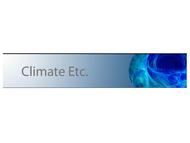A bad recipe for science - Highlighted Article
- Posted On:
- Dec 7, 2023 at 6:00 AM
- Category
- Climate Change
From: Climate Etc.
By: Judith Curry
Date: November 17, 2023
Politically-motivated manufacture of scientific consensus corrupts the scientific process and leads to poor policy decisions
An essay with excerpts from my new book Climate Uncertainty and Risk.
In the 21st century, humankind is facing a myriad of complex societal problems that are characterized by deep uncertainties, systemic risks and disagreements about values. Climate change and the Covid-19 pandemic are prominent examples of such wicked problems. For such problems, the relevant science has become increasingly like litigation, where truth seeking has become secondary to politics and advocacy on behalf of a preferred policy solution.
How does politics influence the scientific process for societally relevant issues? Political bias influences research funding priorities, the scientific questions that are asked, how the findings are interpreted, what is cited, and what gets canonized. Factual statements are filtered in assessment reports and by the media with an eye to downstream political use.
How does politics influence the behavior of scientists? There is pressure on scientists to support consensus positions, moral objectives and the relevant policies. This pressure comes from universities and professional societies, scientists themselves who are activists, journalists and from federal funding agencies in terms of research funding priorities. Because evaluations by one’s colleagues are so central to success in academia, it is easy to induce fear of social sanctions for expressing the ideas that, though not necessarily shown to be factually or scientifically wrong, are widely unpopular.
Activist scientists use their privileged position to advance moral and political agendas. This political activism extends to the professional societies that publish journals and organize conferences. This activism has a gatekeeping effect on what gets published, who gets heard at conferences, and who receives professional recognition. Virtually all professional societies whose membership has any link to climate research have issued policy statements on climate change, urging action to eliminate fossil fuel emissions. (continue reading)


